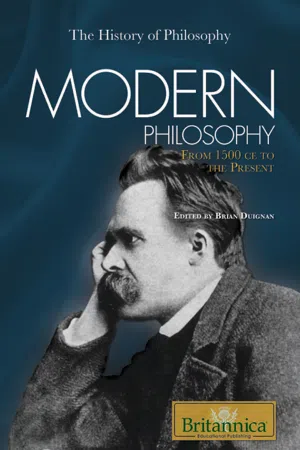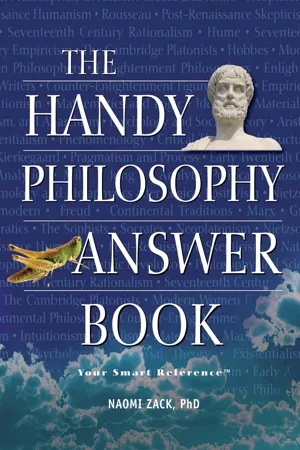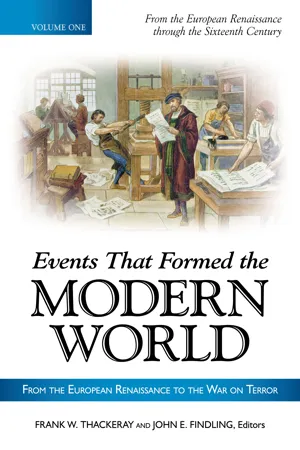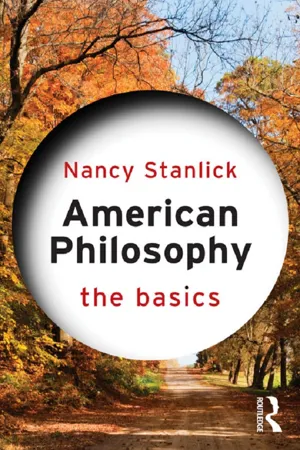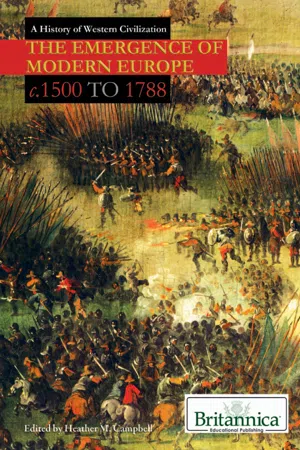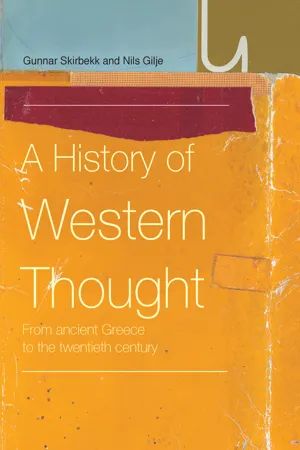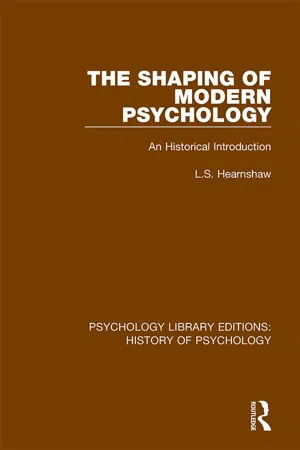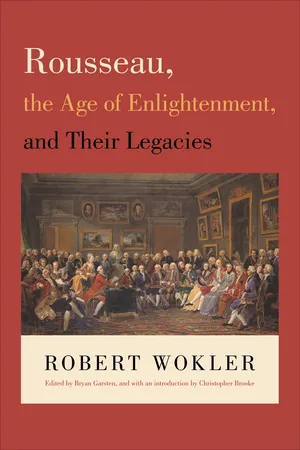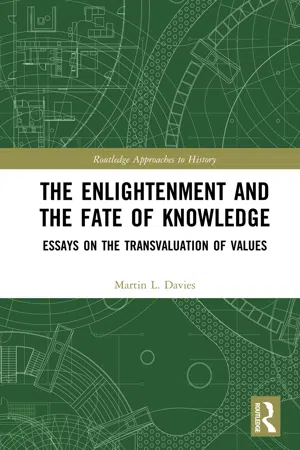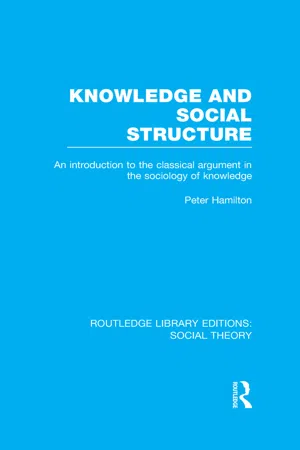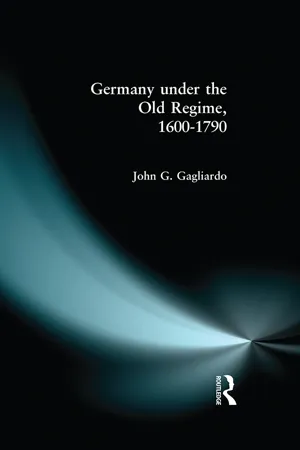History
Origins of Enlightenment
The origins of the Enlightenment can be traced back to the 17th and 18th centuries in Europe, characterized by a shift towards reason, science, and individualism. It was a period marked by intellectual and cultural advancements, challenging traditional authority and promoting ideas of liberty, progress, and tolerance. Key figures such as John Locke, Voltaire, and Immanuel Kant played significant roles in shaping the Enlightenment movement.
Written by Perlego with AI-assistance
Related key terms
Related key terms
1 of 4
Related key terms
1 of 3
12 Key excerpts on "Origins of Enlightenment"
- eBook - ePub
Modern Philosophy
From 1500 CE to the Present
- Britannica Educational Publishing, Brian Duignan(Authors)
- 2010(Publication Date)
- Britannica Educational Publishing(Publisher)
HAPTER 3PHILOSOPHY IN THE ENLIGHTENMENTT he European Enlightenment was an intellectual movement of the 17th and 18th centuries in which ideas concerning God, reason, nature, and humanity were synthesized into a worldview that gained wide assent and instigated revolutionary developments in art, philosophy, and politics. Central to Enlightenment thought were the use and celebration of reason, the power by which humans understand the universe and improve their own condition. The goals of rational man were considered to be knowledge, freedom, and happiness.SOURCES AND DEVELOPMENT OF ENLIGHTENMENT THOUGHT
The powers and uses of reason had first been explored by the philosophers of ancient Greece, who discerned in the ordered regularity of nature the workings of an intelligent mind. Rome adopted and preserved much of Greek culture, notably including the ideas of a rational natural order and natural law. Amid the turmoil of empire, however, a new concern arose for personal salvation, and the way was paved for the triumph of the Christian religion. Christian thinkers gradually found uses for their Greco-Roman heritage. The system of thought known as Scholasticism, culminating in the work of Thomas Aquinas, resurrected reason as a tool of understanding but subordinated it to spiritual revelation and the revealed truths of Christianity.The intellectual and political edifice of Christianity, seemingly impregnable in the Middle Ages, fell in turn to the assaults made on it by humanism, the Renaissance, and the Protestant Reformation. Humanism bred the experimental science of Bacon, Copernicus, and Galileo and the mathematical rigour of Descartes, Leibniz, and Newton. The Renaissance rediscovered much of Classical culture and revived the notion of humans as creative beings, while the Reformation, more directly but in the long run no less effectively, challenged the monolithic authority of the Roman Catholic Church. For the German Reformer Martin Luther as for Bacon or Descartes, the way to truth lay in the application of human reason. Received authority, whether of Ptolemy (c. 100–c. 170 CE - eBook - ePub
Revival: A History of Modern Culture: Volume II (1934)
The Enlightenment 1687 - 1776
- Preserved Smith(Author)
- 2018(Publication Date)
- Routledge(Publisher)
Chapter IThe Background and the Character of the Enlightenment1. Political History of the Period 1687 to 1776
After the Great Renewal came the Enlightenment; after the Age of Science the Age of Reason. Doubtless the growing confidence in the powers of the human understanding, the enthronement of reason on the seat once held by authority and tradition, the conquest by science of politics, philosophy, and theology, the triumph of reason over superstition, intolerance, and despotism, the education of the masses in the new world-view, and the final decline of rationalism before the assault of neglected emotions and under the solvent of self-critical analysis and subjectivism—doubtless all this is the supremely important revolution of the eighteenth century. As the story of this intellectual revolution will fill the pages of the present volume, a few words are necessary to introduce the reader to the stage on which was enacted this great drama of the human spirit.The theater was that portion of the world inhabited by the white race, that is, Western Europe now including Russia, and the ever expanding territories colonized by Europeans in the Americas. As the chronological limits of the age are clearly marked in the intellectual field by the seminal works of Newton and Locke at its beginning, and by the incursions of the idealistic philosophers and of the romantic poets at its end, so the boundaries of the political epoch are conveniently delimited by events which happened in the ninth decade of the seventeenth century and in the eighth decade of the eighteenth.The Revocation of the Edict of Nantes (1685) not only proved to be the last act of wholesale intolerance but also marked the beginning of the end of the French hegemony. On the other side of the Channel the English Revolution of 1688–89 marked the beginning of the most glorious epoch of English liberty and of British dominion. Both in material and in spiritual matters the British Empire led the van of progress. The consolidation of the Austro-Hungarian dominions (1687), the entrance of Russia into Western civilization (1689) and her rise to the rank of a Great Power (1721), the rise of Brandenburg and her transformation into the Kingdom of Prussia (1701), and the transfer of Spain from the Hapsburgs to the Bourbons (1700) marked the beginning of an epoch which came to an end with the dissolution of the British Empire, with the American and French Revolutions, and with the industrial crisis in the eighth and ninth decades of the eighteenth century. - eBook - ePub
- Naomi Zack(Author)
- 2009(Publication Date)
- Visible Ink Press(Publisher)
What was Enlightenment philosophy?
Enlightenment philosophy was written during the time associated with the Enlightenment, which occurred roughly around the eighteenth century. The Enlightenment was an historical period in which the ideas of philosophers played dominant cultural roles, in contrast to the importance of religion during the medieval period, or the importance of science and technology in the nineteenth and twentieth centuries.What was the Enlightenment?
The Enlightenment was known to its contemporaries and future generations as The Age of Reason. The Enlightenment went beyond intellectual activity to affect painting, literature, architecture, religion, the sciences, and, of course, politics, culminating in the American Revolution (1775–1783) and the French Revolution (1789–1799). While there were common Enlightenment intellectual themes, conditions in different nations produced distinctive types of thought. Also, there was a marked development of ideas from the first half of the 1700s to the second half, principally because of the major social and political changes preceding and accompanying the American and French Revolutions.What were the common themes of the Enlightenment?
The common themes were a set of values that included the following:- Imbuing all other values was the importance of reason and its uses to discover ideal forms of human nature and society.
- The belief in the natural goodness of man, which was to be rediscovered by the reform of corrupt institutions.
- An overall secularity and downplaying of traditional Christian transcendence.
- A new aesthetic and ethics based on the goodness of nature.
- Perhaps most important, a great faith in progress or the belief that the present is better than the past and that the future will be better than the present.
Nevertheless, none of the paramount Enlightenment thinkers simply played out these themes in direct ways. They almost all used reason or rational thought—together with a fair amount of wit—to propound and develop their ideas. The ideas themselves, though, sometimes had unforeseen consequences. That is, often the Enlightenment geniuses went too far, or were not able to fully think things through. As a result, skepticism, pessimism, and romantic madness took over when the ideas of progress and the ideals of human reason ran out. - eBook - ePub
Events That Formed the Modern World
From the European Renaissance through the War on Terror [5 volumes]
- Frank W. Thackeray, John E. Findling, Frank W. Thackeray, John E. Findling, Frank W. Thackeray, John E. Findling(Authors)
- 2012(Publication Date)
- ABC-CLIO(Publisher)
5 The Enlightenment, c. 1750
Introduction
Strictly speaking, the Enlightenment was a development rather than an event. It was a new way of looking at the world that emphasized reason and natural law at the expense of revealed truth and tradition, and it held out the promise of almost unlimited progress for mankind. The influence of the Enlightenment proved so great that the eighteenth century became known as the Age of Reason.Many of the Enlightenment’s antecedents can be found in the seventeenth century’s Scientific Revolution. In particular, the discoveries of the English mathematician Isaac Newton laid the foundation for the Enlightenment. Newton’s 1687 masterpiece, Mathematical Principles of Natural Philosophy, seemed to provide a plausible explanation for the operation of the physical universe. Relying on careful scientific observation and the use of human reason as opposed to divine intervention, Newton’s research was universally acclaimed. By the time of his death in 1727, a growing number of Europeans aspired to become the Newtons of statecraft, economics, and justice, to name just a few disciplines.Seventeenth-century philosophers also paved the way for the Enlightenment. By the middle of the century, the Englishman Francis Bacon and the Frenchman René Descartes had successfully attacked the underpinnings of traditional intellectual inquiry. They argued that truth is knowable but that it is not revealed. Rather, it must be discovered through painstaking observation and experimentation to which human reason must be applied. The implications were startling. If man could discover the truth, or how the laws of nature worked, then this knowledge could be used to create an ever better world.Perhaps the most influential successor to Bacon and Descartes was the Englishman John Locke, whose late-seventeenth-century writings enjoyed considerable popularity. Locke’s commonsensical approach to problems struck a responsive chord. His Essay Concerning Human Understanding - eBook - ePub
- Nancy Stanlick(Author)
- 2012(Publication Date)
- Routledge(Publisher)
Enlightenment thinking in Europe and America affected all realms of human inquiry and interest from science to religion and from ethics to politics. The effects of Enlightenment rationality should not be understated. Without Enlightenment, there would have been no America.WHAT IS ENLIGHTENMENT?Immanuel Kant, an eighteenth-century German philosopher and one of the chief expositors of Enlightenment rationality, explained what is alternately called “The Age of Reason” in his brief essay, “What is Enlightenment?” (1784). For Kant, Enlightenment is the emancipation of humanity from ignorance, error, and intellectual immaturity. It is characterized by confidence in human reason, trust in human autonomy, and belief in human dignity.The rise of Modern science granted people the ability to solve problems through rational means and it allowed them to see that the world was much different from what they thought. Revolutionary events in science had occurred with Copernicus’ rejection of the geocentric theory turning Aristotelian science upside down. The traditional view was that the Earth was the center of the universe and mankind was the ultimate creation on it. Being the “chosen” creation on the planet at the center of the universe, human beings were taught by the authority of the Church that everything was created for them, by God, and that the meaning of it all centered on humans, God, and salvation. The heliocentric theory challenged all that.Scientific discoveries of various kinds sent a significant shock through Western society. Faith in the truth and authority of the past was weakened by exploration of lands and contact with people previously unknown to Europeans. Europeans were beginning to realize that their ways were not the only ways and that there were people around the world who did not look, act, or think like Europeans. More exposure to difference and diversity in thoughts, people, religions, practices, governments, and societies began to challenge the way things were and led people to revolt against the status quo in science, religion, ethics, politics, and other realms. - eBook - ePub
The Emergence of Modern Europe
c. 1500 to 1788
- Britannica Educational Publishing, Heather Campbell(Authors)
- 2010(Publication Date)
- Britannica Educational Publishing(Publisher)
CHAPTER 6 T HE E NLIGHTENMENT T he Enlightenment was both a movement and a state of mind. The term represents a phase in the intellectual history of Europe, but it also serves to define programs of reform in which influential literati, inspired by a common faith in the possibility of a better world, outlined specific targets for criticism and proposals for action. The special significance of the Enlightenment lies in its combination of principle and pragmatism. Consequently, it still engenders controversy about its character and achievements. Two main questions and, relating to each, two schools of thought can be identified. Was the Enlightenment the preserve of an elite, centred on Paris, or a broad current of opinion that the French intellectuals known as the philosophes, to some extent, represented and led? Was it primarily a French movement, having therefore a degree of coherence, or an international phenomenon, having as many facets as there were countries affected? Although most modern interpreters incline to the latter view in both cases, there is still a case for the French emphasis, given the genius of a number of the philosophes and their associates. Unlike other terms applied by historians to describe a phenomenon that they see more clearly than could contemporaries, it was used and cherished by those who believed in the power of mind to liberate and improve - eBook - ePub
A History of Western Thought
From Ancient Greece to the Twentieth Century
- Nils Gilje, Gunnar Skirbekk(Authors)
- 2017(Publication Date)
- Routledge(Publisher)
Under Louis XIV (1638–1715), the absolute monarchy was firmly established in France: the national assembly was dissolved; the noblemen were, to a great degree, reduced to civil servants and courtiers of the king; and the government became centralized. But Louis XIV finally was overtaken by political difficulties at the end of his reign, and in the wake of this, political debate developed. Political discussion in France was awakened as people reacted against the government’s mismanagement. They criticized absolutism for not being sufficiently effective and rational. But these critics did not demand another form of government. They wanted a more enlightened and effective absolute monarchy. At that time, France did not have viable institutions dating from before the absolute monarchy that could ‘sustain the criticism’. It was thus difficult to attain moderation and to make the government more effective with the help of relatively representative institutions, like the British parliament. A change had to come in the form of a political upheaval. This upheaval came in 1789 with the French Revolution.The French did not only lack political institutions. The tradition of political theory had been largely severed. As a result, the French, at the beginning of the eighteenth century, imported British ideas on a grand scale. The ideals were Locke and Newton – the new liberalism and the new science. The French thinkers of the Enlightenment took the British form of government as their model. The French intelligentsia were Anglophiles (‘admirers of the English’). Voltaire visited Britain in the 1720s, and Montesquieu came in the 1730s.The Enlightenment in the eighteenth century was thus connected with social changes and with scientific progress: important scientific societies, like the Royal Society in Britain, were established already by the middle of the seventeenth century. Simultaneously, scientific journals and other publications promoting enlightenment appeared. Large collections of works on all aspects of the knowledge of the day were published (such as the French Encyclopédie ). There was a corresponding modernization of universities throughout the eighteenth century, especially the German universities at the end of this period.1 There was a renewal of academic development in the universities, where, among other subjects, the humanistic disciplines were developing most markedly (cf. Ch. 16 ). By the end of the century, a new intellectual era had emerged. As the twentieth century approached, the scientization of society set in with increasing strength – not only in business and administration, but also in ideas and attitudes. In spite of the many and always changing opposing forces, the programme of the Enlightenment continued to move forward.The political debate in France during the eighteenth century had its source in the literary salons of the urban middle class. In this elegant setting politics, philosophy, and literature easily mingled. This debate, perhaps, did not lead to much that was new and original. It was largely a matter of old ideas being applied to new contexts. But when old ideas are thus applied, they often acquire a different implication. Here, too, British political thought, which at this time was rather conservative in Britain itself, functioned as a critique of society under the absolute monarchy of France. Thus, the idea of a natural law that was above the king, and that ascribed certain inviolable rights to the individual, served stability and social conservatism in Britain. But in the context of French absolutism, this idea functioned as a critique of the regime. And while it was meaningful to talk about such rights in Britain – because they existed there – the idea of such rights became abstract, speculative, and removed from reality in the French setting. The French imported Locke’s concept of human rights without having the practical political experience of the British. The notion of human rights was simultaneously radical, an attack on the absolute monarchy, and speculative, without a concrete political anchoring. The French version of the British ideas was often bitter and critical – not marked by the British mixture of down-to-earth conservatism and common sense reformism. - eBook - ePub
The Shaping of Modern Psychology
An Historical Introduction
- L.S. Hearnshaw(Author)
- 2019(Publication Date)
- Routledge(Publisher)
Chapter 7Eighteenth century developmentsI
The eighteenth century was a period of great significance in the development of psychology; it saw, on the one hand, the crystallization of the many suggestive new ideas of the seventeenth century philosophers into a separate Wissenschaft, or scientific discipline, with a recognized identifying label – psychology; and it saw, on the other hand, the beginning of protest movements against the imposition upon the study of the human mind of the methods and assumptions of the physical sciences. The guiding lights of the Age of Enlightenment, as the period is commonly termed, were the Englishmen Newton and Locke. They dominated the intellectual life not only of England, but to a great extent also of France and to a lesser extent of Germany, and the empirical approach of Locke was the major influence in the emerging discipline of psychology. Locke, however, never had the field to himself. He was challenged by Scottish philosophers of the ‘common sense’ school, by moralists and Platonists in England, and by rationalists in Germany. And all of these had a lasting influence on psychology. But perhaps even more important was the Romantic revolt, which began in the eighteenth century, against the whole ethos of the Enlightenment and the domination of reason, a revolt which involved ‘a vast transformation of ideas, language, attitudes and ways of thinking’, and which ‘for two hundred years has deeply and decisively affected European life’1 including, we may add, European psychology. This revolt was no doubt an outcome of the profound social changes which the eighteenth century brought about, involving the rapid decay of traditional values and ways of life, and the emergence of a new, largely secular society dominated by economic forces. Marx and Engels may have exaggerated in saying that there remained ‘no other bond between man and man than naked self-interest and callous cash payments’.2 - Robert Wokler, Bryan Garsten, Bryan Garsten(Authors)
- 2012(Publication Date)
- Princeton University Press(Publisher)
Of all periods in modern intellectual history, much the most discredited in the eyes of contemporary social scientists is the eighteenth-century Enlightenment. The Enlightenment has been variously depicted as superficial in entrusting the promotion of self-reliance or social progress to the forces of reason over religion; it has been denounced for having naïvely sought to frame an understanding of moral and mental phenomena in terms of objective natural laws modelled in the image of Newtonian physics; it has been held in derision for supposing that human nature was everywhere the same, governed by universally constant appetites or infinitely malleable and hence capable of perfection; it has been found vacuous because its speculative histories of the human race or atomistic conceptions of human nature took no account of the inescapably complex textures of social life.Such objections to the Enlightenment are not all compatible, but either collectively or separately they have come to colour popular perceptions of eighteenth-century intellectual history as well as criticisms made by contemporary social scientists. With regard to our explanations of human nature and society, the Enlightenment has to its detractors come to seem the last pre-scientific age, as the fresh disciplines we currently pursue, whose collective birth may be said to mark its demise, supplant its conjectures with real evidence. Modern notions of social science thus not only reject methodologies of the history of ideas in general. In conducting their empirical investigations of society today, contemporary scientists identify their own approaches as departing, both historically and conceptually, from the Enlightenment Project.In the light of such putative disjunctions between eighteenth-century modes of thought and modern social science, it is altogether remarkable that so many other critics of the Enlightenment—sometimes even the same critics—have also denounced that intellectual movement for having engendered the pre-eminent political forces and social practices of modernity. For Jacob Talmon and Lester Crocker, the principal beneficiaries of the Enlightenment have been the totalitarian democracies of the twentieth century, whose vast schemes of social engineering are said to have drawn their inspiration above all from eighteenth-century notions of moral plasticity, perfectibility and the recasting of human nature. For Alasdair MacIntyre, the Enlightenment’s critical scepticism, empty formalism and vacuous rationalism have cut modern societies adrift from the moorings of shared beliefs, religious faith and communal action on which their survival depends. For John Gray, our naïve trust in perpetual progress and in the universal rights of man inspired by Enlightenment thought just obscures the insuperable cleavages between nations and cultures which no spirit of cosmopolitanism can hope to overcome. For Theodor Adorno, Max Horkheimer and Zygmunt Bauman, even the horrors of the Holocaust may be understood as a dreadful expression of the merely instrumental notions of scientific rationality to which Enlightenment thinkers subscribed.2- eBook - ePub
The Enlightenment and the Fate of Knowledge
Essays on the Transvaluation of Values
- Martin Davies(Author)
- 2019(Publication Date)
- Routledge(Publisher)
He offers, therefore, not the technical analysis of the scholastic connoisseur, but a symbolic form originating in what the heterogeneous aspects of the Enlightenment as a whole signify. In this the task of philosophy is crucial. In the eighteenth century (he says) it was meant to be not a separate discipline but the medium animating the various natural and human sciences. It does not remain on the level of ‘mere thinking’ [ das blosse Denken ], but penetrates into that ‘deeper order from which, like thinking, all human intellectual activity arises, and in which, according to a fundamental conviction of Enlightenment philosophy, it must be grounded’ (Cassirer 1973: VIII–IX). Thus, as desire for knowledge, the Enlightenment is defined as integral to human existence: thus defined, this desire vindicates its intrinsic cognitive and ethical value whatever historically happens. Apprehension may well continue to define modern culture, but not just because Enlightenment rationalism failed to achieve its ideals, still signs of intellectual and moral self-orientation, but rather because its loss would be irreparable. As Cassirer remarks in his preface, dated October 1932, ‘the century that had seen and venerated in reason and science “the supreme force of human beings” cannot and may not also for us be simply over and lost’. And he adds that ‘a way must be found not only for seeing it in its own structure, but also for liberating again the original forces that brought this structure forth and shaped it’ [ wir müssen einen Weg finden, es nicht nur in seiner eigenen Gestalt zu sehen, sondern auch die ursprünglichen Kräfte wieder frei zu machen, die diese Gestalt hervorgebracht und gebildet haben ] (Cassirer 1973: XIV). In these circumstances, its absence would indicate a dehumanized culture. 3 - eBook - ePub
Knowledge and Social Structure (RLE Social Theory)
An Introduction to the Classical Argument in the Sociology of Knowledge
- Peter Hamilton(Author)
- 2014(Publication Date)
- Routledge(Publisher)
1 Philosophy and the roots of social science: the Enlightenment DOI: 10.4324/9781315758046-1To introduce a primarily analytical essay by reference to a group of thinkers whose significance is to many purely historical—bearing no concrete relationship to modern trends in, or theoretical developments of, the sociology of knowledge—requires some justification. Let me very briefly provide that justification by outlining the aims of this preliminary chapter. First, I want to demonstrate that we should consider the Enlightenment philosophes (I propose to use through-out this essay the term philosophes, without quotation marks, as the most acceptable synonym for the men of the Enlightenment: my reasons are based on Gay’s reason for the same usage) as those who produced the first steps towards a modern social science in general, and to a modern sociology in particular. And second, I would like to show that in producing an elementary sociology they also produced, largely as a result of the critical rationalism which informed and underlay their whole ‘program’ (as Peter Gay has called it,1) a theory of ideology which can be regarded quite properly as inaugurating the sociology of knowledge as an integral part of Western social theory.I
The importance of the Enlightenment, both as social movement and period of intense intellectual development, cannot easily be over-stressed, particularly as it effects discussion of sociology and the sociology of knowledge. What the philosophes produced, when their gaze was directed towards scientific analysis of society, was characteristically a sociology of ideas and values. In modern terms they were more interested in the cultural components, than in the structure, of the social system, and such an interest arose out of their efforts to break down moral and political philosophy into secular, non-metaphysical and primarily rational elements. Without doubt what resulted was not always objective: the very spirit of critical rationalism which underlay their world implied a degree of commitment to certain values. But those values, which might be summarized as anthropocentric, were not antithetical to a scientific approach to society and to man’s role as a social being but rather encouraged such an approach. They were, in the main, scientific values. The philosophes were engaged sociologists and anthropologists, but the direction of their engagement led them to unify reason and science into a world view, which when it became systematized, laid the foundations of a science of society. Enlightenment man was committed to progress, change, secularism, humanity and cosmopolitanism, but above all, to freedom and to the rights of the individual to determine his own beliefs and values.2This ‘recovery of nerve’ which manifested itself in a ‘science of freedom’3—a practical science with man at its centre, pursued for his good alone and not for the glory of God or gods—is thus the real source of social science, or as they were termed at the time, the ‘moral’ sciences. And this term is in itself significant in that it gives conclusive proof of the destruction of moral philosophy (which had operated since the Middle Ages as a branch of theology): the old concerns of moral philosophy with the ethics of worldly princes, the duties of men to their fellow men and their relationships to their rulers, and the sources of law, justice and the social order could now be considered within a non-religious framework: the advent of a science of man meant that they could be examined rationally and with regard to how things actually existed, rather than to how they should exist. The new science looked not for revealed truth, or a priori - eBook - ePub
- John G. Gagliardo(Author)
- 2014(Publication Date)
- Routledge(Publisher)
Chapter Fifteen The Early Enlightenment to 1750In broadest perspective, the enlightenment grew out of the long process by which, since the Renaissance, the worlds of nature and of man began to be understood and analyzed not as reflections of a divine will which had frozen them in eternally immutable immobility in a single act of creation, but as dynamic entities, parts of an ongoing creation which had the capability of change and development according to their own natures.Underlying this evolving conception of the human and natural worlds was a reconstitution of the concept of natural law which tended to return it in the direction of its origins in the ancient classical world, before its modification by medieval Christian thinking. In this reformulation, natural law was the law by which God had willed His creation to be ruled and was itself pure reason. Man, endowed by divine will with his own nature which included the faculty of reasoning, was capable of understanding the plan of the universe – the laws of its operation – by careful study of the phenomena of the created world. The applicability of this idea to the study of the physical world was obvious. The entire ‘scientific revolution’ began in astronomy with Copernicus in the sixteenth century and was advanced in the same field well into the seventeenth by the work of such figures as Tycho Brahe and Johannes Kepler – both of them court astronomers in Prague – and Galileo Galilei and was provisionally capped by the publication of the comprehensive Mathematical Principles of Natural Philosophy
Index pages curate the most relevant extracts from our library of academic textbooks. They’ve been created using an in-house natural language model (NLM), each adding context and meaning to key research topics.
Explore more topic indexes
Explore more topic indexes
1 of 6
Explore more topic indexes
1 of 4
